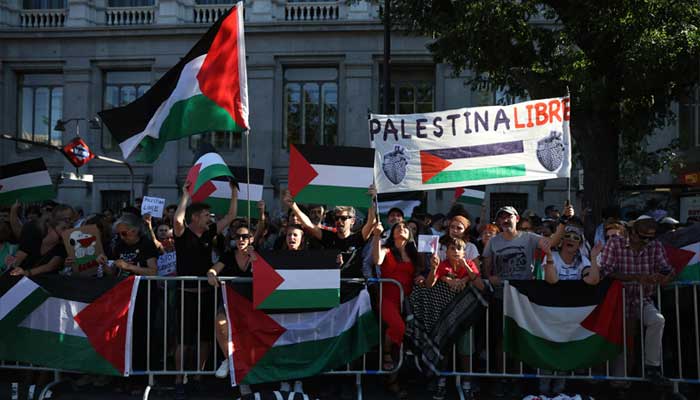Palestine is recognized by Britain, Australia, Canada, and Portugal; France, Belgium, and more nations are probably going to follow. After almost two years of fighting in Gaza, Britain, Australia, Canada, and Portugal recognized a Palestinian state on Sunday. France, Belgium, and more nations are expected to follow suit in the UN General Assembly. This is a summary of the state’s diplomatic recognition, which was unilaterally declared in 1988 by the exiled Palestinian leadership.
Israel presently controls the West Bank and the Gaza Strip, which are both mostly in ruins, out of the state’s claimed territory. Which nations have recognized or intend to recognize the State of Palestine? Three-quarters of UN members, in response. At least 145 of the 193 UN members officially recognize the State of Palestine, according to an AFP count. Three African nations have not yet provided AFP with recent confirmation. Portugal, Australia, and Canada—the first two G7 nations to do so—are included in the count.
At a summit on the future of the two-state solution, which is being led by France and Saudi Arabia on Monday at the United Nations headquarters in New York, a number of additional nations, including France, Belgium, Luxembourg, and Malta, are anticipated to follow suit. Russia is already on the list, as are all Arab nations, nearly every nation in Africa and Latin America, and the majority of Asian nations, including China and India. On November 15, 1988, just minutes after Yasser Arafat, the late head of the Palestine Liberation Organization (PLO), unilaterally declared an independent Palestinian state, Algeria became the first nation to formally recognize a Palestinian state. In the weeks and months that followed, dozens of additional nations did the same, and in late 2010 and early 2011, there was yet another round of recognitions.
Thirteen more nations have recognized the state as a result of Israel’s offensive in Gaza. Who doesn’t? The United States, Israel, and their allies are among the minimum of forty-five nations. The administration of Israeli Prime Minister Benjamin Netanyahu vehemently opposes the creation of a Palestinian state. Among the Asian nations who do not recognize Palestine are South Korea, Japan, and Singapore. Panama in Latin America, Cameroon in Africa, and the majority of Oceania don’t either. With an almost 50/50 split on Palestinian statehood, Europe is the most divided continent on the matter.
Other than Turkey, the former Soviet bloc was the only nation to recognize the State of Palestine until the middle of the decade. The Czech Republic and Hungary, two former Eastern Bloc nations, do not now recognize a Palestinian state on a bilateral basis. Sweden expanded recognition in 2014, but until then, Western and Northern Europe were unified in non-recognition. However, the war in Gaza has turned everything upside down. Sweden recognized the state in 2024, followed by Norway, Spain, Ireland, and Slovenia, before the UK and Portugal did so on Sunday. Germany and Italy have no intention of acknowledging a Palestinian state.
What is meant by recognition? Palestinian statehood recognition is “one of the most complicated questions” in international law, according to Romain Le Boeuf, an international law professor at the University of Aix-Marseille in southern France. He compared it to “a little like a halfway point between the political and juridical.” He informed AFP that states had a wide range of explicit and tacit choices about the timing and format of recognition. Le Boeuf claims that there isn’t an office to record recognitions.
“From a strictly subjective perspective, the Palestinian Authority in the West Bank lists everything they believe to constitute acts of recognition. Similarly, other states will claim to have recognized or not, but they won’t really need to provide evidence to support their claims,” he said. International law is unambiguous on one point, though: “Recognition does not mean that a state has been created, no more than the lack of recognition prevents the state from existing.” According to him, three-quarters of nations believe “that Palestine meets all the necessary conditions to be a state,” despite the fact that recognition primarily has symbolic and political significance.
“I know for many people this seems only symbolic, but actually in terms of symbolism, it is sort of a game changer,” the New York Times published an article by lawyer and Franco-British law professor Philippe Sands in mid-August 2025. “Because once you recognise Palestinian statehood… you essentially put Palestine and Israel on level footing in terms of their treatment under international law.”





















